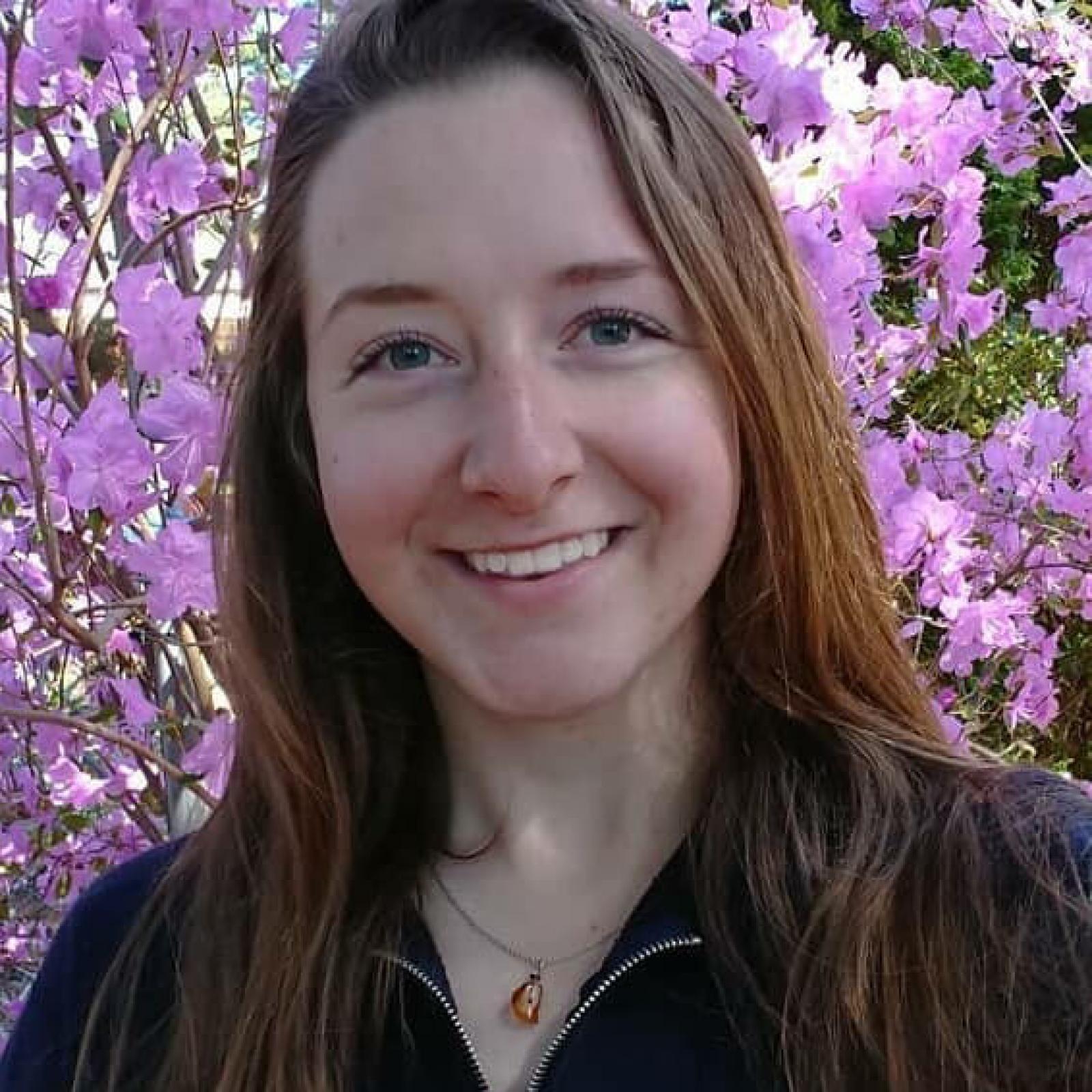July 3, 2020
Stephaine Jocius plans a career in public horticulture

Stephanie Jocius
Jocius had planned to pursue several employment opportunities at facilities in the United States, but with the onset of the Covid-19 pandemic, those facilities either closed or could not afford to hire, and the border was shut down. She is currently working on an eight-week internship with a landscape company in Burnaby, B.C., where she is happy to stay for the time being.
Jocius has a natural passion to teach others about the trees and plant material around them. In her final years at West Elgin Secondary School in West Lorne, Ont., she worked at Rondeau Provincial Park where she developed guided hikes for visitors that focused on the trees and plant species of the park. “In doing the hikes I realized I really liked working outside, especially with plants,” she says.
Growing up, Jocius was surrounded by horticulture. Her family owns a greenhouse nursery/garden centre. “Every year, March Break, we would be in there planting any kind of annual or vegetable plant, and then through the summer. My entire life, I’ve been involved in some aspect, helping out to keep things going with the family business,” she says.
Jocius applied to a lot of environmental-style programs for her post-secondary education, but then her father asked if she had ever considered horticulture. She checked out the NPC website and had recalled visiting the grounds as a kid. “The program had a lot of aspects that were super-appealing at the time, like being able to live in the botanical gardens,” Jocius says. “It’s the best when something is not going that well and you go outside and take a walk in the botanical garden to clear your mind and get inspiration.”“In doing the hikes I realized I really liked working outside, especially with plants.”
— Stephanie Jocius
Jocius began her studies at NPC in March of 2017. Throughout her three years, she was involved in the student association — as vice-president and then president in her final year.
“The third year of the program can be incredibly challenging, because you have a 40-hour week at school, plus homework and assignments,” Jocius explains. “You have to find your own housing and live off-site.” That comes with added costs, something she says she didn’t originally consider at that point in time. “I was struggling a bit financially,” she recalls, and says many students take on maintenance work for clients to help bridge that financial gap.
Jocius got some help with her finances in the form of a $1,000 post-secondary scholarship from the Ontario Horticultural Trades Foundation. She says the assistance “lifted a little bit of weight off my shoulders. At least I didn’t have to worry about trying to make that money myself.”
In addition to several international study tours, another highlight of her education was a third-year internship at Filoli Centre in Woodside, California, a 16-acre site that includes a historic building.
“In California, I was surprised to see a lot of what we would consider tropical plants just growing wild,” she says. Another big difference was the threat of wildfires and the minimal use of irrigation.
In her first year, Jocius signed up to be on the rhododendron elective to oversee the extensive collections on the Niagara Parks property. Her interest in rhodos grew, and along with some other students, she attended a meeting of the Niagara chapter of the American Rhododendron Society. “It was a great meeting,” she recalls, and says former Niagara Parks superintendent Tom Laviolette actually paid for the students to become members. The students continued going to meetings and helping out with events.
Upon arriving in B.C., Jocius was immediately amazed by the size and number of rhododendrons growing easily in the region. There’s also a very established Japanese-style garden at the University of British Columbia. Right now, she is focused on gaining the work experience she feels is required for her to succeed later on in public horticulture — something she continues to keep an eye on for the future.